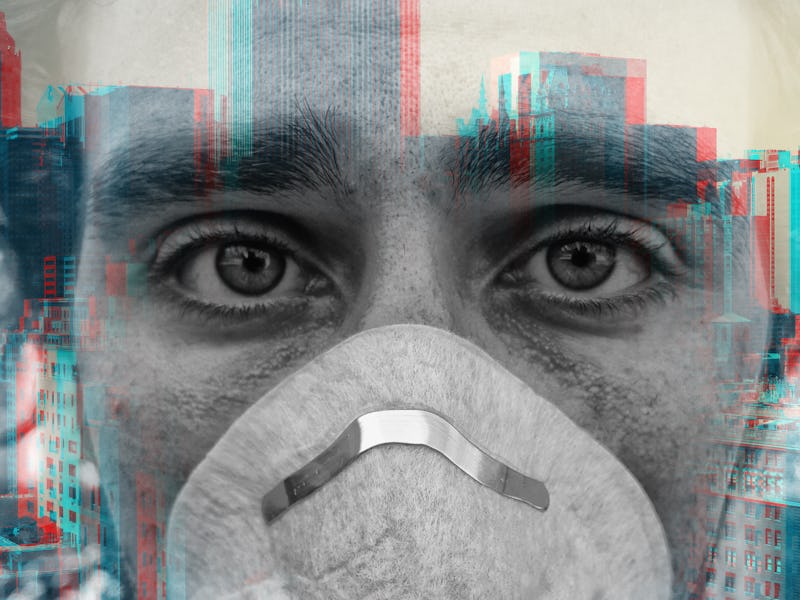"Covid-19 does not spare young people," researchers caution as cases surge
What 3,222 young adult Covid-19 cases tell us about the disease.

As the Covid-19 pandemic evolves, so has our understanding of who the virus hits hardest. Clinicians typically warn that immunocompromised and elderly people, as well as those with certain underlying health conditions, are especially vulnerable. Men, recent analysis suggests, also are at a greater risk of dying from the disease.
Young adults in their physical prime are rarely the focus. However, a recent analysis of young adult Covid-19 patients reframes that thinking with sobering clarity.
According to a research letter published Wednesday in the journal JAMA Internal Medicine, young adults can experience substantial rates of adverse outcomes. An analysis of 3,222 young adults between 18 to 34-years-old hospitalized with Covid-19 indicated that:
- 21 percent required intensive care.
- 10 percent required mechanical ventilation.
- 2.7 percent died.
What part of the Covid-19 pandemic do you think causes the most confusion? We want to know. Take the Inverse reader survey.
Jonathan Cunningham is the research letter's first author and a cardiology fellow at Brigham & Women's Hospital & Harvard Medical School. He tells Inverse that while most adults who are infected with Covid-19 do not need hospitalization, those who are admitted at "substantial risk for poor outcomes," including needing treatment in an intensive care unit, a ventilator, or dying.
The report found that young adult patients with conditions like diabetes, morbid obesity, and high blood pressure were at greater risk of adverse events linked to Covid-19. Patients with more than one of these conditions faced risks comparable with those observed in middle-aged adults without them.
"Young adults should know that everyone, regardless of age, is at some risk of a severe outcome from Covid-19," Cunningham says.
"Especially as colleges and universities restart, young adults should be aware of the risks of COVID-19 and take the appropriate precautions to protect themselves from infection."
Coronavirus in young adults
To date, few studies have tracked the clinical progression of Covid-19 in young adults. That's primarily because, according to Cunningham and his colleagues, Covid-19 is typically assumed to be a disease affecting older adults.
To fill this research gap and figure out how Covid-19 influences the health and well being of young adults, the team collected data on young adults between the ages 18 to 34 who were discharged between April 1 and June 30, 2020. They excluded pregnant young adults and only counted patients' first hospitalization for Covid-19. Ultimately, the study population included 3,222 young adults representing admissions to 419 US hospitals.
The average age of this group was 28 years old. Approximately 57.6 percent of patients were men. Fifty-seven percent were Black or Hispanic, a finding that aligns with prior findings of disproportionate illness severity in these demographic groups.
Overall, 36.8 percent had obesity, 24.5 percent morbid obesity (having a body mass index (BMI) greater than 40 kilograms/meters squared), 18.2 percent diabetes, and 16.1 percent hypertension — conditions that have been linked to severe outcomes in other studies.
Death and Mechanical Ventilation in Young Adults With and Without Morbid Obesity, Hypertension, and Diabetes
Meanwhile, a portion of the young adults in the study faced serious and sometimes deadly consequences from Covid-19.
"These findings show that the minority of young adults who have to go to the hospital for Covid-19 face meaningful risks of a severe course, including treatment in an intensive care unit, needing a ventilator to breathe, or even dying," Cunningham says.
Coronavirus deaths and the factor of age
Older age has consistently been associated with higher mortality in patients with Covid-19, Mitchell Katz, the president and chief executive officer of NYC Health + Hospitals, explained in a related editor's note.
Still, Katz writes, these findings show "Covid-19 does not spare young people."
In the study, the in-hospital rate of death for young adults was lower than that reported for older adults with Covid-19, and approximately double that of young adults who experience a heart attack.
"While young adults are much less likely than older persons to become seriously ill, if they reach the point of hospitalization, their risks are substantial," Katz explains.
Meanwhile, morbid obesity, hypertension, and being male were associated with a greater risk of death or mechanical ventilation. Patients with more than one of these risk factors had similar outcomes to middle-aged adults without any risk factors.
As obesity and hypertension are preventable and treatable conditions, Katz argues reducing the risk of serious Covid-19 illness should be added to the "already long list of reasons to increase medical and public health efforts in young adults to promote healthful diets and increased exercise."
Currently, rates of Covid-19 infections in young adults are "sharply rising," the research letter authors report. These spikes are fueled, in part, by colleges reopening. Others reason young people are less vigilant about social distancing, and behavioral factors drive case counts. Against this backdrop, the team's findings are especially salient.
"Covid-19 is a life-threatening disease in people of all ages," Katz comments. "Social distancing, facial coverings, and other approaches to prevent transmission are as important in young adults as in older persons."